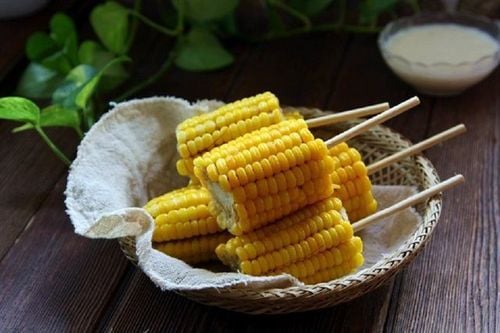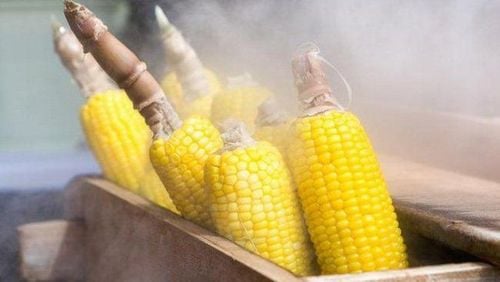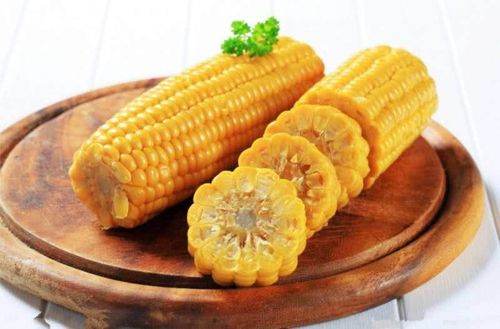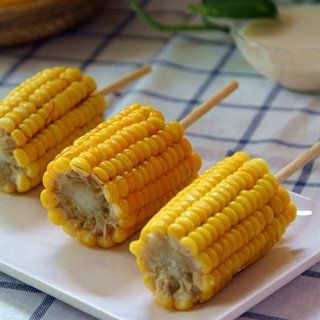Corn is widely known as both a vegetable and a nutritious whole grain. Each ear of corn is rich in fiber, vitamins, and essential minerals, making it a popular choice in healthy meal plans. However, due to its high carbohydrate content, some people may worry whether eating corn leads to weight gain.
1. What is corn?
Corn is a commonly consumed food around the world, often considered both a vegetable and a nourishing whole grain.
Over 9,000 years ago, corn originated in Mexico and today is a staple food crop in many countries. It can be found in colors such as white, yellow, purple, red, and green. Corn is typically consumed in forms such as popcorn, cornmeal, corn syrup, oil, and other food products.
In addition to its culinary uses, corn is also widely used as animal feed and for biofuel production. In fact, about 40% of the corn grown in the United States is used as raw material, while 60-70% of the world’s corn production is used for animal feed.
2. Nutritional Value of Corn
Corn is a whole grain rich in fiber, carbohydrates, vitamins, and minerals. For example, one cup (164 grams) of yellow sweet corn provides the following nutrients:
- Calories: 177
- Protein: 5.4 grams
- Carbs: 41 grams
- Fat: 2.1 grams
- Fiber: 4.6 grams
- Magnesium: 11% of Daily Value (DV)
- Vitamin C: 17% of DV
- Folate (Vitamin B9): 19% of DV
- Potassium: 10% of DV
- Thiamine (Vitamin B1): 24% of DV
With its impressive nutritional profile, most of us can reap health benefits from consuming corn and incorporating it into our diet. Notably, corn is also a natural gluten-free food, making it an excellent choice for individuals with Celiac disease.
Although it is nutritionally rich, it is important to note that processed corn products may lack significant nutritional value, such as refined syrups and oils. This is due to the manufacturing process, which removes much of the beneficial fiber and other essential nutrients.

3. Does Eating Corn Make You Gain Weight?
Many people wonder, "Does eating corn make you fat?" or "Can corn help with weight loss?" In fact, corn contains a high amount of starch, which can increase blood sugar levels. This high starch content means that corn could contribute to weight gain if consumed in large quantities.
A recent study found that individuals who regularly consumed a portion of corn every day could gain 2 pounds (0.9 kg).
Therefore, individuals planning to lose weight should consider limiting their daily intake of corn. Instead of corn, you may opt for other starchy foods such as potatoes, vegetables, or peas, which are less likely to contribute to significant weight gain.
4. Does Eating Boiled Corn Make You Gain Weight?
Is eating boiled corn fattening? In fact, the fats in corn consist mainly of omega-3 and omega-6 fatty acids, which are beneficial for health. Therefore, boiled corn can be included in a weight loss diet.
Additionally, boiled corn contains vitamins E, fiber, and magnesium, with relatively low fat content. Consuming boiled corn in moderation will help prevent excessive fat accumulation in the body.
So, does eating sticky corn lead to weight gain? Sticky corn is often chosen by many for its chewy, soft texture and delicious flavor. However, in reality, the nutritional components in sticky corn are not significantly different from those found in other types of corn. Therefore, if you are planning to lose weight with corn, it is recommended to choose non-GMO sticky corn and consume it in appropriate portions at suitable times.
Experts suggest that individuals looking to lose weight should consume corn during breakfast or as a snack. It is advisable to avoid eating corn late at night, close to bedtime, as the body may not fully digest the calories from the corn. This could result in the accumulation of excess fat, ultimately leading to weight gain.
5. Health Benefits of Eating Corn
While consuming large amounts of corn may lead to weight gain, it also contains various plant compounds and antioxidants that offer significant health benefits, including:
Good for Eye Health
Currently, cataracts and age-related macular degeneration are the most common vision problems worldwide. They are also the leading causes of blindness.
In general, aging and infections are considered the primary factors contributing to these eye conditions. However, your daily diet plays an equally important role in eye health.
A diet rich in antioxidants, such as lutein and zeaxanthin, can help enhance eye health. Both zeaxanthin and lutein are carotenoids found predominantly in corn. However, white corn typically has a lower carotenoid content compared to other varieties of corn.
Studies have shown that regularly consuming corn can effectively help prevent eye diseases, including cataracts and age-related macular degeneration (AMD). This is largely due to the lutein and zeaxanthin in corn, which constitute a significant portion of the macula in your retina.
Preventing Diverticulosis
Diverticulosis is a common digestive issue, often characterized by symptoms such as bloating, cramping, abdominal discomfort, bleeding, and, less frequently, infection.
Corn and other fiber-rich foods are known to help protect against digestive diseases, including diverticulosis (inflammation of the digestive tract). A recent study found that individuals who ate popcorn at least twice a week had a significantly lower risk of developing diverticulosis compared to those who did not consume it regularly.

7. How to prepare and use corn
Corn is an incredibly versatile food that can be incorporated into a variety of dishes.
Nowadays, corn is widely available in grocery stores and farmers' markets in fresh, canned, or frozen forms. You can prepare fresh corn by grilling or boiling it, and enjoy it with a pinch of salt or melted butter.
Corn kernels can be added to vegetables, soups, salads, or eaten with butter, olive oil, and various spices. Other corn products, such as cornmeal or dried corn kernels, can be used to make bread or popcorn, which serve as excellent snack options.
Visit Vinmec.com for more useful health-related information.
To arrange an appointment, please call HOTLINE or make your reservation directly HERE. You may also download the MyVinmec app to schedule appointments faster and manage your reservations more conveniently.
Reference article: healthline.com
To arrange an appointment, please call HOTLINE or make your reservation directly HERE. You may also download the MyVinmec app to schedule appointments faster and manage your reservations more conveniently.





